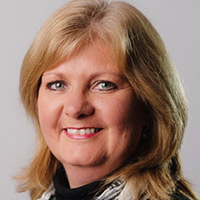Jisc leads project to identify sustainable IT investment and management practices for Welsh colleges

The enforced shift to remote work and study during the pandemic prompted a hike in the demand for IT equipment and, consequently, a global shortage.

It’s important then, that all organisations understand how to make the most of their investment in devices. This is particularly pertinent for the hard-pressed further education sector.
To help, Jisc has been commissioned by the Welsh government to produce advice for further education colleges in Wales around sustainable investment in IT.
We know there’s no ‘one-size-fits-all' solution
The project will look at the lifecycle, distribution and management of devices, including procurement and other practices that could maximise return on investment in end-user devices.
While principally designed to help colleges make the most of financial investments, this work could also have positive implications for net zero targets and for reducing digital poverty.
Jisc will be working with the NPTC Group of Colleges, Cardiff and Vale College and Coleg Sir Gar to develop guidance from which the whole sector can benefit and which recognises the subtle differences in approach across the sector.
We know there’s no ‘one-size-fits-all' solution: some colleges outsource the IT function, and offset responsibility for devices; some are heavily invested in a Google estate; others use Microsoft services.
Together, we will look to gain a consensus on what sustainable investment looks like.
...we will identify the infrastructure and systems that are required to sustainably support and manage user devices and to securely host learning materials.
Yes, we’ll look at what - and how - to buy laptops and other devices, but the procurement process is only part of the picture and colleges in Wales are already buying IT equipment in sufficient quantities to secure very good deals from suppliers.
Beyond procurement, we will identify the infrastructure and systems that are required to sustainably support and manage user devices and to securely host learning materials. These might include helpdesk and repair services, virtual learning environments and student record systems, cloud services and campus internet connections.
We’ll also consider the tools or software that remotely handle devices at scale, such as software license management and real-time remote-control capability.
The challenge because of COVID-19 has been whether there's been enough equipment to meet the increase in demand. So, we’ll also be considering how colleges can retrieve devices from students, and then refresh and redeploy them to maximise the lifespan and usefulness of kit beyond the typical warranty period of three years.
We’ll also consider the tools or software that remotely handles devices at scale, such as software license management and real-time remote-control capability.
Some devices could be reconfigured; some could provide computer science learners with opportunities to practice; others could be donated in the community.
Even devices out of warranty could be repurposed. Assuming they're still in perfectly good working order, licensed software could be stripped out and replaced with open-source content and the devices given to disadvantaged learners who don't have computers.
Finally, how should we responsibly dispose of devices that have reached the end of their usefulness? The discussion will seek to identify a process for securely disposing of returned equipment, including the erasing of data, maximising recycling potential and final disposal with the minimum impact on the environment.
After gathering information on best practice over the next few months, Jisc will publish a web-based toolkit that can also be downloaded in an editable format to allow colleges to amend and reuse the content within their organisation.
The toolkit, which we aim to publish in June, should provide practical guidance and questions to prompt informed decision-making by IT directors across the sector.
Read this page in Welsh / Darllenwch y dudalen hon yn Gymraeg.
About the author

I have responsibility to ensure outstanding service for Jisc members and communities in Wales.